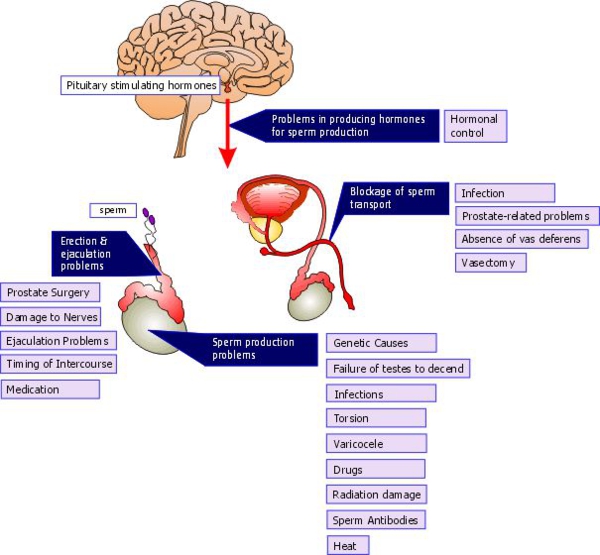When most people hear the word ‘infertility’ they automatically think ‘barren.’ Then they attempt to assign blame to someone – either the man or the woman in question must be at fault for the conception trouble, right? It must be clear cut, and one of them must have something wrong with them.
Except that’s not always how it works.
Actually, according to the statistics and the latest medical facts, infertility isn’t always one person’s fault. Sometimes it’s a combination of factors, and sometimes there just is no explanation. But let’s look at what the stats have to say about things.
Up to 30% of Infertility Cases Are Idiopathic
Where there’s a clear cause for infertility – such as low sperm count or motility, PCOS or ovulation trouble, it’s easy to pinpoint the problem behind the conception trouble. These are the cases where it’s clearly one person or the other who has the biological problem conceiving, or where both parties have a condition that limits their fertility.
While there tend to be a little more women than men who have diagnosed fertility problems (often because they take the trouble to get a diagnosis), the male / female balance of causes is roughly equal. Often, when couples visit a fertility specialist for a diagnosis, they will find that they both have a condition or disorder that reduces their chances of conception – although it’s worth noting that these are often obstacles to conception – not something that will prevent you from having a baby altogether.
Most of these conditions are treatable, and many of the couples in question will go on to conceive one or more children after being diagnosed.
Approximately 25 to 30 percent of all cases of infertility, however, are what is known as idiopathic. That means that even after a medical examination of all the common factors and causes involved that may cause both partners to be infertile, there’s no scientific reason why they cannot conceive.
Harder to Treat
The problem with idiopathic infertility is that while it means that there’s no chance of anyone laying the blame for the problem with their partner, it’s also much harder to treat.
When couples visit a fertility specialist, and are diagnoses with a common fertility stunting disease or disorder, it’s a lot easier for their doctor to create a treatment plan – whether that means medication, surgery or any other type of fertility treatment.
When there’s no clear cause for the inability to conceive, it’s a lot harder to devise a treatment plan that will have the results you want, and that can mean trying anything and everything as you get more desperate for a baby.
Not Always Bad News
If you’re reading this, and thinking that idiopathic infertility is just about the scariest possibility you’ve ever encountered, then there’s a little bit of good news that you should know as well.
While it’s true that struggling for months or years to conceive, then being examined by lots of people in white coats, only to be told that they don’t have an explanation or an immediate solution may be frustrating and disheartening, there is a silver lining.
That is that sometimes, idiopathic infertility will resolve itself without rhyme or reason too. These are often the cases where couples have given up trying to conceive, and chosen to adopt or use a surrogate, only to find that their family expands more rapidly than planned when they conceive themselves.
So as you can see, when it comes to fertility trouble, it’s not always easy to attribute the ‘blame’ to one person or the other. Sometimes you both play a role, and sometimes there’s just no reason. Whatever your situation is, however, you should both be focused on the goal: conception, rather than on assigning blame.
Tamara A. is an experienced women’s health writer. She wrote this article for Las Vegas Fertility Center Red Rock Fertility.

